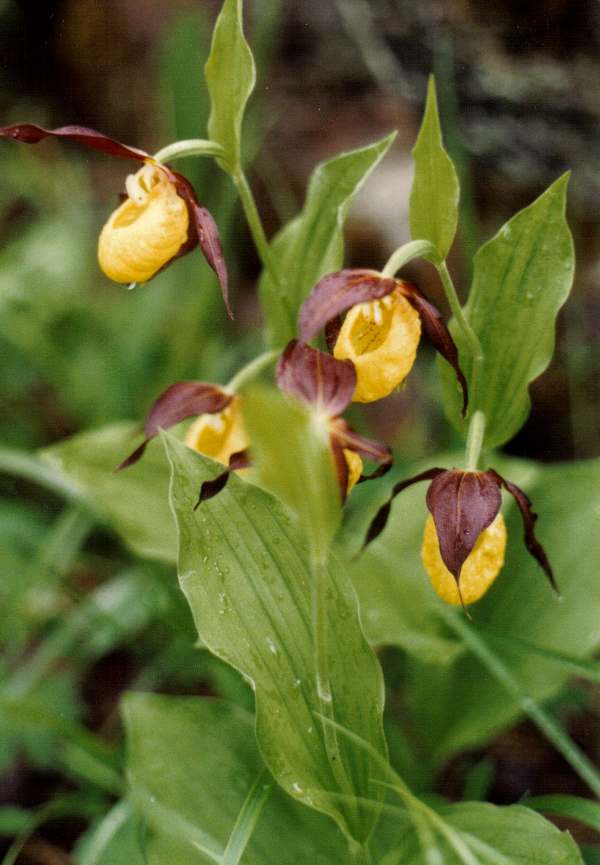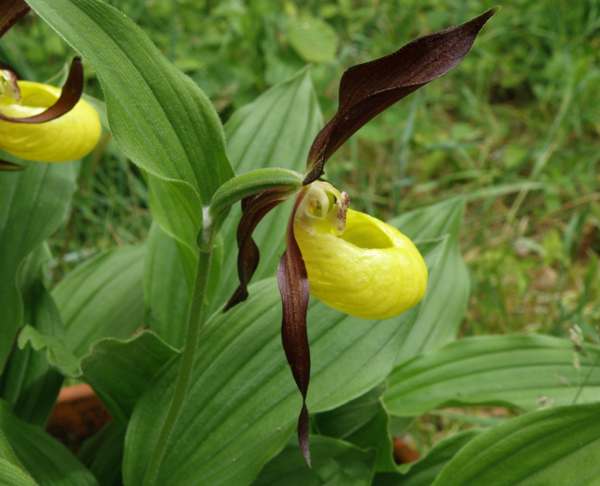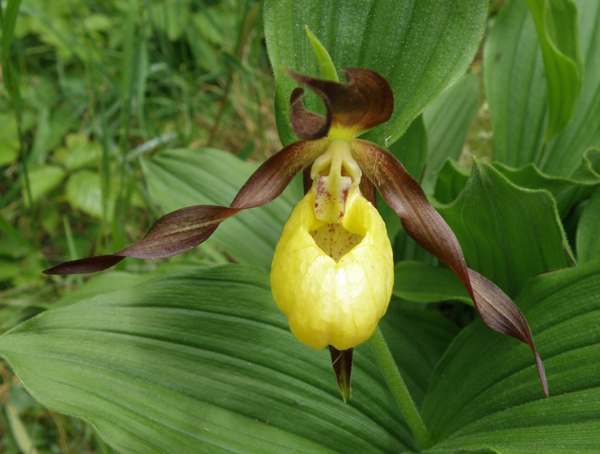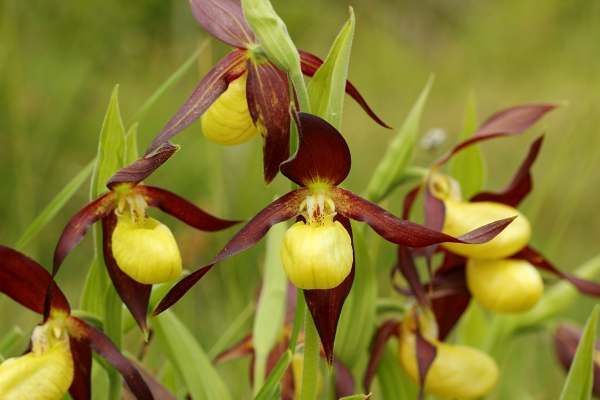Cypripedium calceolus - Lady's Slipper Orchid
Phylum: Magnoliophyta - Class: Liliopsida - Order: Orchidales - Family: Orchidaceae

The Lady's Slipper Orchid was recognised as a native European species in 1568, and the earliest record of a British plant is of a dried herbarium specimen from 1640, collected from the Ingleton area in Yorkshire.

Distribution
Although still widespread in some parts of Europe, the Lady's Slipper Orchid was always a rarity in Britian and consequently highly prized by plant collectors who, from the mid-18th Century, collected the plants with such ruthlessness that by 1888 great concern was being expressed at the disappearance of the Lady's Slipper Orchid from the wild. Regrettably the population continued to decline, resulting in its declared extinction by 1917.

In recent years a re-introduction programme has been carried out at Gait Barrows National Nature Reserve in Lancashire. This programme which is jointly funded between Natural England and the Sainsburys Foundation has been very successful and there are now many flowering plants which can be visited by the public.
The best time to see this orchid at Gait Barrows NNR is in the first half of June.
Although driven to the brink of extinction in the UK the Lady's Slipper Orchid still occurs in the wild in various European countries including Sweden, Bulgaria, Slovenia, France, Switzerland and Finland.
The Lady's Slipper Orchid is rare and in decline in all its territories and is still the subject of plant theft.
Etymology
The genus name Cypripedium comes from the Greek Kypris, meaning 'Venus', and podilon, meaning 'slipper'. The specific epithet calceolus means 'small shoe' - a somewhat tautologous binomial, therefore'.

The plants shown on this page were photographed in Sweden and in Gait Barrows National Nature Reserve.
Reference sources
The Plant List
Anne and Simon Harrap (2005) Orchids of Britain and Ireland; A&C Black
Pierre Delforge (2005) Orchids of Europe, North Africa and the Middle East; A&C Black
Acknowledgements
This page includes pictures kindly contributed by Rob Petley-Jones.
Please Help Us: If you have found this information interesting and useful, please consider helping to keep First Nature online by making a small donation towards the web hosting and internet costs.
Any donations over and above the essential running costs will help support the conservation work of Plantlife, the Rivers Trust and charitable botanic gardens - as do author royalties and publisher proceeds from books by Pat and Sue.


